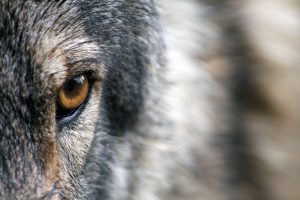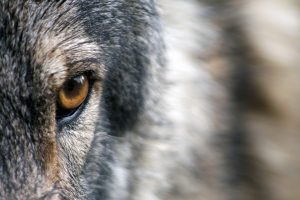An official with the state’s Wolf Advisory Group told public radio’s Northwest News Network, that out of concern for the pups, it would not be humane to remove the pack’s remaining adults.
By The Herald Editorial Board
The state’s pursuit and killing of members of a wolf pack in northeastern Washington state is likely done for the year.
But the controversy and the discussion of policy on how the state and others limit predation of livestock by the Profanity Peak pack and other packs are certain to continue into next year.
At the start of the year, an estimated 90 wolves ranged Washington in 19 packs, most concentrated in the state’s northeastern corner. But following the death of 13 cattle grazing in the Colville National Forest, the state Department of Fish and Wildlife followed its protocol, and at the request of the rancher, began shooting the wolves from helicopters this summer, including the accidental elimination of the pack’s breeding female.
Of the pack’s estimated 11 wolves, six have been killed, leaving two adults and some pups. An official with the state’s Wolf Advisory Group told public radio’s Northwest News Network, that out of concern for the pups, it would not be humane to remove the pack’s remaining adults.
And as the grazing permits expire this fall, the threat of cattle predation in the Colville will end as well.
Gray wolves are listed as endangered under the Endangered Species Act, but in Washington only those west of U.S. 97 are protected. Those east of that dividing line are not.
The culling of the Profanity Peak pack was performed as part of a protocol developed during discussions among state officials and biologists, ranchers and environmental groups included in the Wolf Advisory Group, with the goal of stopping the killing of livestock by wolves.
As developed, Northwest News Network reported, the protocol requires ranchers to take precautions to avoid conflicts with wolves, such as keeping livestock away from known dens. As a last resort, lethal removal is allowed and managed by the state.
It’s a plan that’s earned praise, even from environmental groups, especially compared to other states; Idaho allows ranchers to kill any wolf that they believe have killed their cattle.
But the policy may not have been applied well in regard to the Profanity Peak wolves. A Seattle Times report from August quoted a WSU researcher who said the rancher who lost his cattle released them near a known den and has declined to use radio collars on his cattle. With the wolves already being tracked by radio, putting radio collars on the cattle might have helped predict the movements of both and avoided putting the cattle in harm’s way.
Robert Wielgus, who is director of Washington State University’s Large Carnivore Conservation Lab and is conducting a study that is tracking collared cattle and wolves, told the Times that the predations by the Profanity Peak pack were predictable and avoidable. In contrast, there has been no loss of livestock among the ranchers who are participating in his study, and none among other ranchers following the state’s protocol.
Wielgus also noted that wolves are not the leading threat to cattle; more are killed by logging trucks, fire and lightning strikes.
The Wolf Advisory Group is expected to meet this winter to review this summer’s events and its wolf management protocols.
Better adherence to its protocol should be discussed, but so, too, should there be some discussion that recognizes that ranchers’ use of federal grazing lands within national forests ought to respect the dangers that are present, whether those are wolves, fire or logging trucks.
The National Forests are a resource that is meant to be managed “for the greatest good” to benefit resource production, recreation and wildlife conservation.
Elimination of a species that helps to balance the forest ecosystem would turn the Colville and other such public lands into a glorified feed lot.

